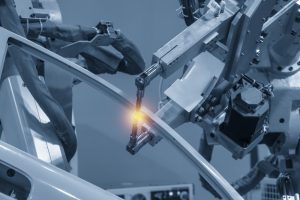Implementing changes in business often poses organizational, financial, and legal challenges. However, the selection and implementation of automation or robotics solutions is a unique undertaking, for several reasons: significant costs, expected impact on business indicators, technical complexity, high customization of the solution, and multidimensional legal aspects of such implementation.
This article provides an overview of the main legal challenges faced by an entity intending to embark on an automation or robotics project. In the following articles, we will take a closer look at the various aspects.
Supplier selection and project acceptance
The first and basic task facing a company preparing to implement automation solutions is to select a contractor and compare various offers. The customer often cannot describe all the parameters of the system in the request for quotation. They know what effect they want to achieve, but they do not always have enough knowledge and experience to describe the system precisely. This is not facilitated by the fact that the solutions existing on the market are often based on proprietary tools, processes, and products. It is also worth remembering that not only the specifics of the system itself but also its price and payment schedule should be the key variables in the decision-making process.
There are many legal considerations to take into account when selecting a contractor. Such variables as the scope and length of warranties, rules, and limitations of liability, the right to interfere with the system, the availability, and terms of potential service, the financial security of contract performance, the timing of the transfer of ownership, and related risks, the issue of intellectual property rights, can often determine whether a project will succeed or fail.
Polish law provides many options for organizing the process of selecting the right supplier (in this article we omit public entities, which must comply with public procurement law and its applicable procedures). Private procurers have a great deal of freedom in how they conduct the procedure – from a request for proposal and acceptance of the bid submitted, through a civil auction or auction, to negotiations. The choice of the appropriate form will depend largely on the detailed subject matter of the contract, the number of suppliers active on the market, and the complexity of the implementation. Nevertheless, what should be paid particular attention to is the evaluation of the entire project (including the terms of the potential contract) and the transparency of the process. After all, there is nothing wrong with holding parallel discussions and negotiating a contract to get a thorough understanding of the available business terms, as long as everyone involved knows what the process looks like and agrees to it. Otherwise, the contracting authority may be accused of negotiating in bad faith and be liable.
The process of acceptance and verification of the project execution – both in the test environment and in the production phase (go live), and thus full integration of the automation with the existing processes and removal of detected errors and defects is also extremely important.

Personal data protection
When preparing for the automation implementation process, it is necessary to analyze personal data. Some processes and implementations, due to the scope and manner of their implementation and the technical solutions used, will not require the processing of personal data. However, this is quite a rare situation. Nowadays most business processes are connected in one way or another with their processing. At the same time, it is difficult to imagine an implementation related to automation that will not affect the flow and security of data within the organization. Per the principles of “privacy by design” and “privacy by default” resulting from the RODO (Regulation on the Protection of Personal Data) (privacy by default), the issue of the impact of implementing analytics on personal data protection should be taken into account and analyzed already at the planning stage of the entire project.
Workforce aspects
Robotization and automation of processes also involve human resource management issues. Sometimes it means staff reduction (which also requires legal planning and assessment, especially when using various forms of public support from the so-called crisis shields introduced during the COVID-19 pandemic) or retraining and re-training of part of the team. Training and post-implementation support should also be an important part of the planned and contractual elements of working with the contractor.
Financing and taxes
The implementation of automation and robotization solutions can have a significant impact on the tax situation of the contracting authority. When planning this type of investment, it is worth considering taking advantage of the tax reliefs available to taxpayers for research and development activities, which can make the project significantly more economically attractive. On the other hand, taxpayers must also remember to correctly recognize incurred expenses in business costs (on the grounds of income taxes). In the case of cross-border receivables, one must not forget about the issues of the so-called withholding tax, which the ordering party may be obliged to collect and pay. It may have a significant impact on financial liquidity.
Summary
The framework of one article does not allow for detailed reference to all the issues, but only to sketch a broader picture of the legal challenges in the implementation of automation and robotization. These will be discussed in more detail in future publications.
The article appeared on pages 54 and 55 in Automatyka, issue 12/2020. – https://automatykaonline.pl/Automatyka/Roczniki/2020/12-2020

Facebook: https://www.facebook.com/miesiecznikautomatyka
LinkedIn: https://www.linkedin.com/showcase/miesi%C4%99cznik-automatyka/


